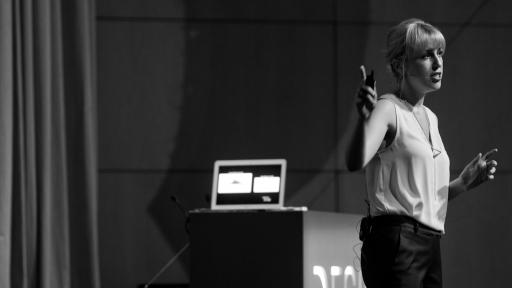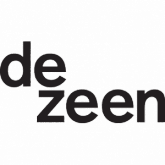Dezeen and MINI World Tour: in our next movie from Design Indabain Cape Town, designer Alexandra Daisy Ginsberg discusses synthetic biology - a new field of science that could see designers creating artificial lifeforms.
For example, bacteria could one day be developed to excrete brightly coloured pigments when they detect disease inside your body, alerting you via vividly coloured poo.
Synthetic biology is a development of the age-old practice of selective breeding, Ginsberg explains: "We've been designing biology for 10,000 years or more," she says. "Every crop, or your pet dog - it has all been designed in a way. It's been iterated and iterated by human decisions into the thing that we want. The idea behind synthetic biology is that you can get much more control and start moving things across living kingdoms that haven't interacted at a genetic level before."
Ginsberg gives the example of E.chromi, a project she worked on with fellow designer James King and undergraduate students at Cambridge University, which won the International Genetically Engineered Machine competition in 2009. "It's a competition where thousands of students from around the world get together to design a bacteria that does something cool," she explains. "We were working with students at Cambridge who were designing bacteria that produce different coloured pigments."
As part of the project, Ginsberg and her team considered the possible future applications and implications of their work. "We imagined that in about 2039 it would become culturally acceptable to drink a Yakult-type yoghurt laced with E.chromi bacteria that would start to detect diseases in your gut," she says. "If you had a disease they'd start producing a corresponding coloured pigment. So coloured poo is the thing that everyone has taken from this project, as a new kind of interface for biological computing."
Not content to simply present the project as a series of diagrams, Ginsberg and King created a mock-up of what the imagined excrement might look like. "We wanted to challenge the scientists and engineers who are actually inventing the technology with what we thought was an interesting aesthetic response," She explains. "They're representing it as cogs and machines, but this is biology. We shouldn't be shy or coy about talking about what's unique about this technology."
This movie features a MINI Cooper S Countryman.
The music featured is by South African artist Floyd Lavine, who performed as part of the Design Indaba Music Circuit. You can listen to Lavine's music on Dezeen Music Project.










